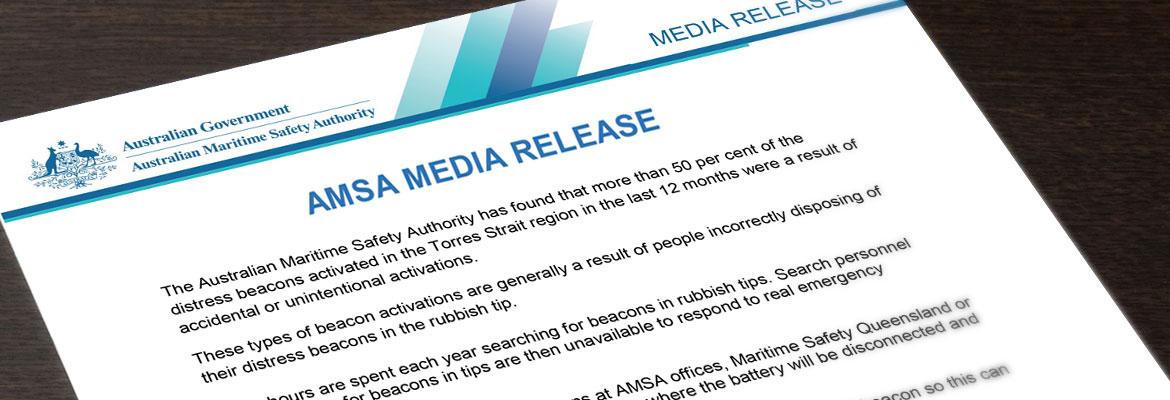
Under a Memorandum of Understanding, AMSA will draw on the scientific knowledge and technical support of CSIRO before, during and after a maritime environmental incident, such as an oil spill, to help understand the impact of pollution on the surrounding marine environment.
The CSIRO/AMSA Scientific Support Agreement was developed following recommendations of the recently completed Review of the National Plan to Combat Pollution of the Sea by Oil and other Noxious and Hazardous Substances and the Montara Commission of Enquiry.
CSIRO’s significant expertise and experience in maritime and marine science will serve AMSA’s need for immediate advice during an incident response to ensure timely decisions can be made that help minimise impact, and monitor Australia’s marine environment against oil spills, pollution or damage from a vessel collision or grounding.
“AMSA’s shipping management is world’s best practice and with the addition of CSIRO’s scientific knowledge and expertise, we’re helping the long‐term sustainability of the shipping industry,” AMSA’S General Manager of Marine Environment Toby Stone said.
“Incidents are irregular, but can be disastrous. This partnership between AMSA and CSIRO will mean better informed responses to help protect the marine environment from the impacts of major marine pollution incident.”
The types of projects CSIRO may undertake for AMSA include preparedness planning, including drawing on CSIRO biodiversity and natural resources knowledge; incident support, including providing direct advice to the incident response team during an incident; long‐term impact assessments following incidents and research projects which can increase incident response efficiency.
“In the upcoming decades, Australian territorial waters will experience rapid expansion in oil and gas development plus a major increase in international shipping. With this increased development and shipping there are also increased environmental risks,” CSIRO Program Director, Dr Andrew Ross said.
“Effective management of these incidents relies on information about our marine environment. CSIRO is able to provide access to national data which will assist AMSA to implement effective responses and better understand the impacts of major incidents.”
AMSA has commenced the implementation of recommendations identified in the 10‐year review of the National Plan and National Maritime Emergency Response Arrangements (NMERA), including an upgrade of the nation’s oil spill response equipment stockpiles which is currently being rolled out around the country.
CSIRO has a strong record of providing scientific input during maritime incidents and a rich knowledge base from which to advise on the likely impacts and to design environmental monitoring strategies.
Previous incidents include the Montara wellhead spill off Western Australia, and the BP oil spill in the Gulf of Mexico during which CSIRO was called in to use a prototype hydrocarbon sensor array to map the location and movement of the oil.